Almost everyone overeats on occasion. But for some people, excessive overeating crosses the line to binge eating disorder. Are you a binge eater? Finding it tough to cope up with your habit?
When I was actively bingeing, I was sure I was alone in my suffering. Well, I knew I wasn’t the only person on the planet who binged but I had NO earthly idea just how common it is. And because I grew up in a society that praises self-control and thinness, before I became a binge eater, the image I had of them was probably something like those people you’d see on My 600-lb life just laying around all day gorging on piles of food.
You know the image I mean, someone too lazy & big to even get up, who did nothing but lay around all stuffing themselves and were mostly a drain on society. I had little to no compassion or respect for anyone who didn’t have the self-control to just get off their ass and diet and exercise the problem away — especially so for myself. Because that’s what we always hear, isn’t it? That people live that way because they’re too lazy to “fix it”.
That’s actually horseshit. Living with and recovering from it taught me how flat out wrong (and damaging) that assumption is – though it took me a long time to get there.
Early on in my bingeing days, I was thoroughly ashamed and disgusted with myself.
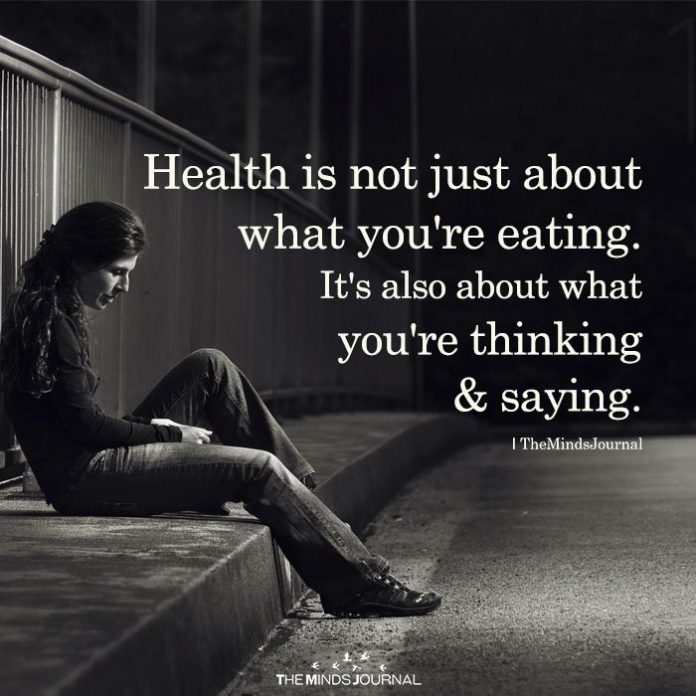
Of course, I’d end up a binge eating bulimic – the grossest of all eating disorders. Why couldn’t I just be an anorexic? At least they get skinny – is what I used to think. I even befriended an anorexic, hoping her anorexia would rub off on me.
Yes, I knew how sick that was at the time – I just didn’t know how to change it.
Here’s the truth: binge eaters come in all shapes, sizes, and activity levels. Some of my worst binges and sickest days were at my most active and smallest size. I’m talking about wearing children’s clothing because I was so tiny yet inhaling thousands upon thousands of calories in sugar per day.
And the negative assumptions we have regarding binge eating is deeply damaging because it keeps people hiding in shame, avoiding talking about it or seeking treatment/recovery.
On top of that, binge eaters are the least likely to receive adequate treatment because they’re less likely to get life-threateningly thin.
How broken is a system that gives priority treatment to those who are the skinniest among a group of people who are all working equally hard to destroy their bodies because they’re so terrified of gaining weight?
Throughout my own experience and recovery, I gained a whole new level of understanding, compassion, and respect for binge eaters and bulimics. When we know better, we do better, as they say, and now I see those original judgments of mine (and of the rest of society) for what they are: wholly misguided, naive, and downright ignorant.
Binge eating has nothing to do with food or self-control and it has nothing to do with someone’s size. You cannot someone who binge eats by the size of the body they’re in.
Read 16 Signs You’re A Binge Thinker
So, what’s the difference between a binge and just overeating?
They’re both self-punishing behaviors, a binge just takes it to a whole nother level. Additionally, a binge is usually preceded with feelings of desperation to get food ASAP and a lack of the ability to control the need.
Eating is usually done with speed (the faster it goes in the better, right?!), often in hiding and you may feel completely helpless to stop eating. It’s usually way more food than just something like overeating an extra helping of dinner or having a second brownie. And a binge is followed by DEEP feelings of shame, judgment and self-hate.
What Causes Bingeing?
The three biggest causes:
1. Dieting:
Particularly strict dieting that eliminates food groups or severely restricts calories. That’s not to suggest that everyone who diets turns into a binge eater, but it happens WAY more frequently than we even realize because food restriction is incompatible with the way our brains work & it sets us up for binge behaviors.
Read Intermittent Fasting For Weight Loss: Does It Actually Work?
2. Self-hate/punishment:
Bingeing is quite literally the act of treating one’s body like a garbage dumpster and physical manifestation of attempting to destroy it. If you’re purposely trying to jam as much food as humanly possible, as fast as humanly possible knowing it’s going to make you sick, you’re punishing it (and yourself) for something. It’s that simple.
3. Feeling empty/trying to fill a hole:
I used to physically feel like there was a hole in the center of my chest that I was desperately trying to fill with food. When I started working on recovery, I started being able to identify this feeling, and learning what was causing it. For me, it was a lack of self-love and self-trust among other things. I was abandoning myself in every conceivable way and it manifested as a huge empty feeling in my chest that I interpreted as constant hunger.
Read 5 Sure-shot Ways To Train Your Brain To stop Overeating
The Two Worst Things You Can Do When You’re a Binge Eater
The exact things we ALL do:
- Try to willpower and/or diet the problem away. It makes it worse.
- Beat the hell out of yourself for being such a pathetic failure (or whatever lie you’re telling yourself about your bingeing) It also makes it worse.
How Do You Stop?
You address the why – deal with and heal the causes.
Going back to our causes, in no particular order:
1. Dieting causes it so stop dieting & restricting foods.
When your body gets everything it needs and stops fearing that you cannot ever have certain foods again, you no longer gorge on everything at once because you think “I can’t have it again when I start being good again”.
Read How to Overcome an Eating Disorder: 4 Things to Stop Doing
2. Self-hate causes it so building a more loving and respectful relationship with yourself is job #1!
Bingeing cannot occur in someone who loves and values themselves and their bodies. It simply can’t. Those two things cannot co-exist. So if you heal your relationship with yourself, bingeing just stops because you start respecting yourself and your body enough that you cannot even fathom treating it so horribly.
3. If you’re trying to fill a hole, figure out what that hole is trying to tell you that you need.
For me, the hole was being causes by past pain that I’d never dealt with and a desperate need for my own love and support.
Read Mindful Eating: Breaking the Emotional Cycle
The three biggest misconceptions about binge eating:
- That it’s about the food. It’s not. Food is just a tool we use to numb and self-punish.
- That reflects a lack of self-control and willpower. That’s just not true. It’s a symptom of a deeply damaged relationship with self – nothing more, nothing less.
- That only person who binges are overweight and lazy — “skinny” people don’t binge. Also untrue. Some of my worst binges ever were when I was under 110lbs and busting my ass with hours of exercise a day. And I am by far not the only lean person to ever binge. You cannot tell a binge eater from a non-binge eater based on their size.
Learning to stop bingeing isn’t always easy but too often the only reason people struggle to stop is simply lack of understanding and their unwillingness to give up the things that are actually keeping them stuck in that cycle.
The first step to recovery is understanding that – that bingeing & weight gain are the symptoms, not the problems. When you address the actual, underlying problems, the symptoms are simply no longer an issue — they just go away.
Treat the reasons you’re bingeing and whammo, no more bingeing.
The second step to recovery is simply wanting to start doing exactly that. How long does it take?
Everyone is different, it’s impossible to say. The one thing I know for sure is that the longer you put off starting, the longer it will take.
I’ll leave you with one final thought on bingeing. Stop judging yourself for it or trying to force yourself to stop. I learned to stop by giving myself permission to binge. Why permission? Because only when I realized the binges were serving a purpose and stopped judging myself for them, was I able to start understanding the causes and actually healing those things.
Judgement and shame only make them worse by contributing to the self-loathing that feeds them.
Written by Roni Davis
Originally appeared in Roni Davis
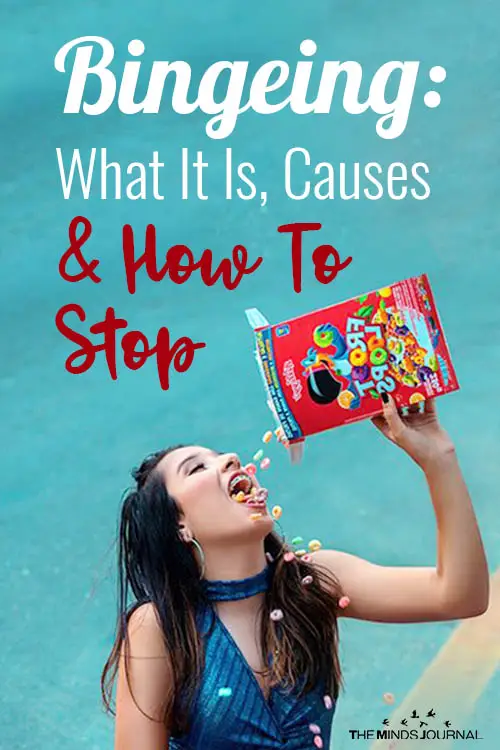
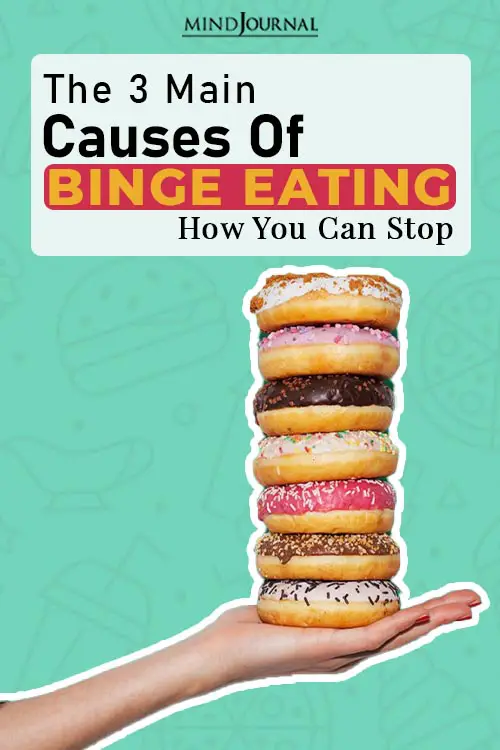
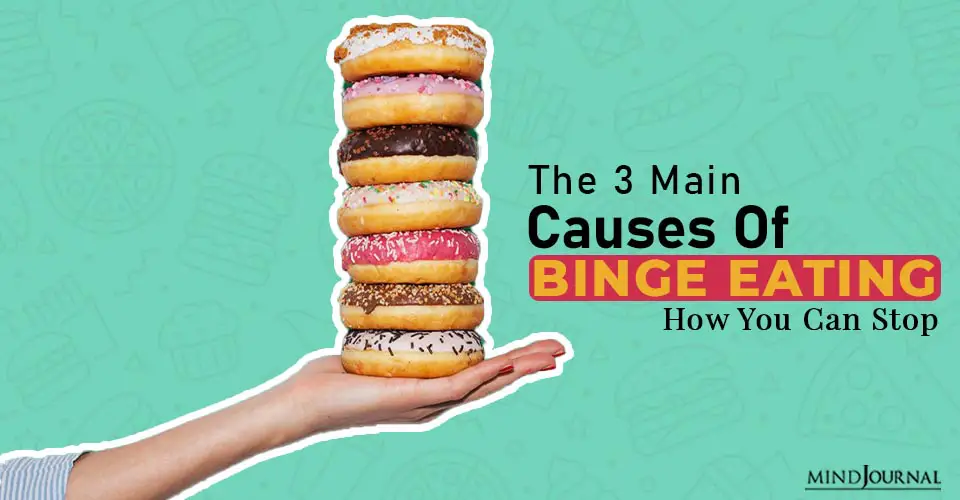


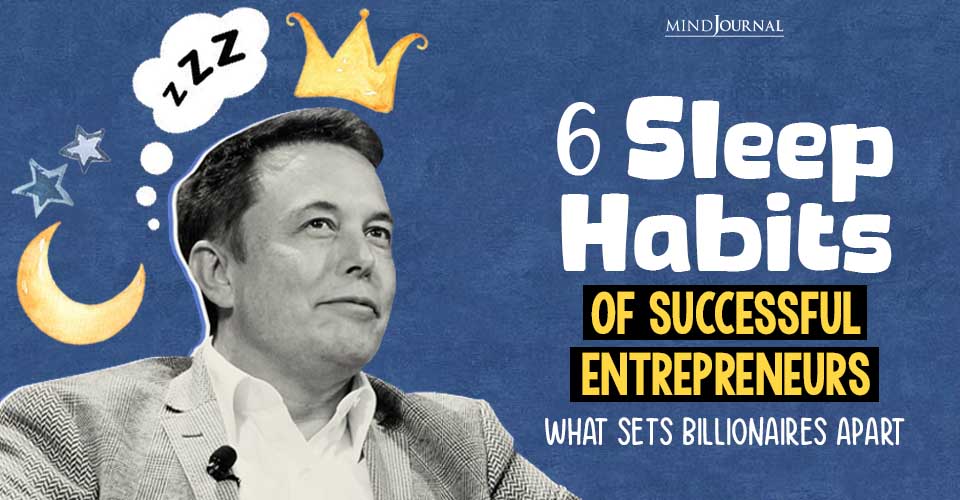


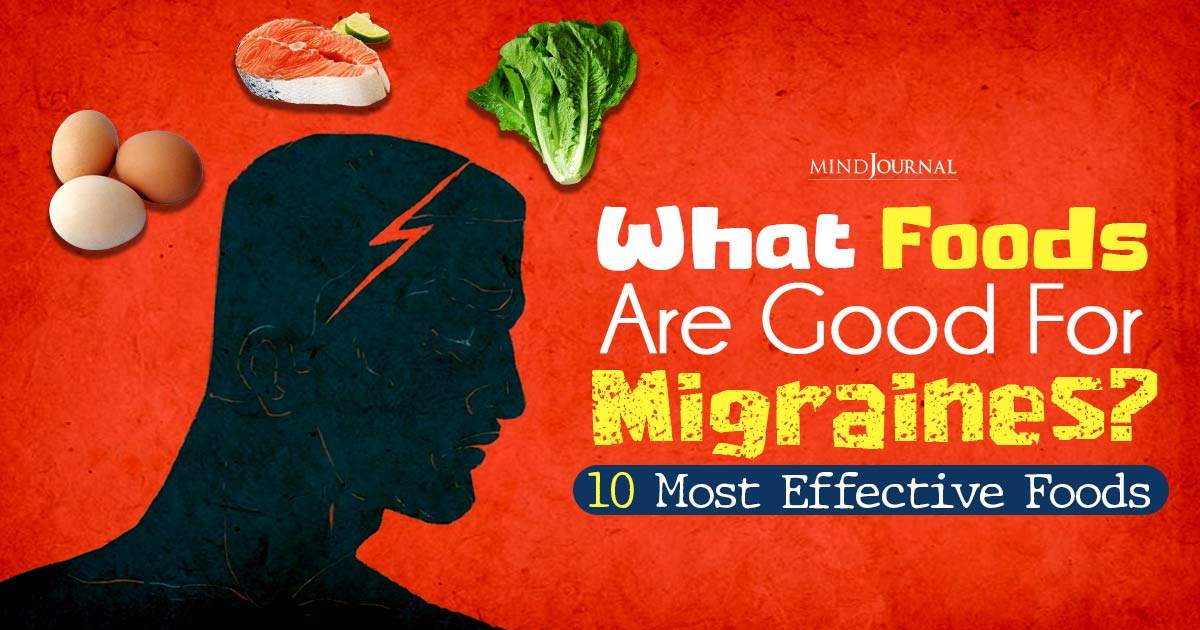
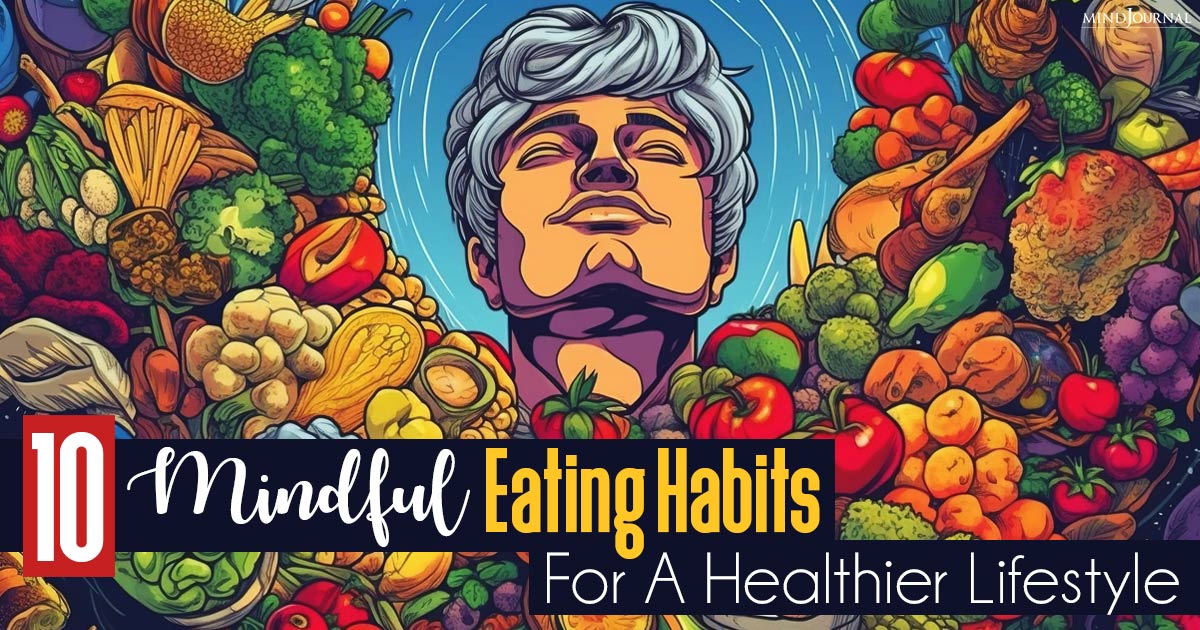
Leave a Reply
You must be logged in to post a comment.